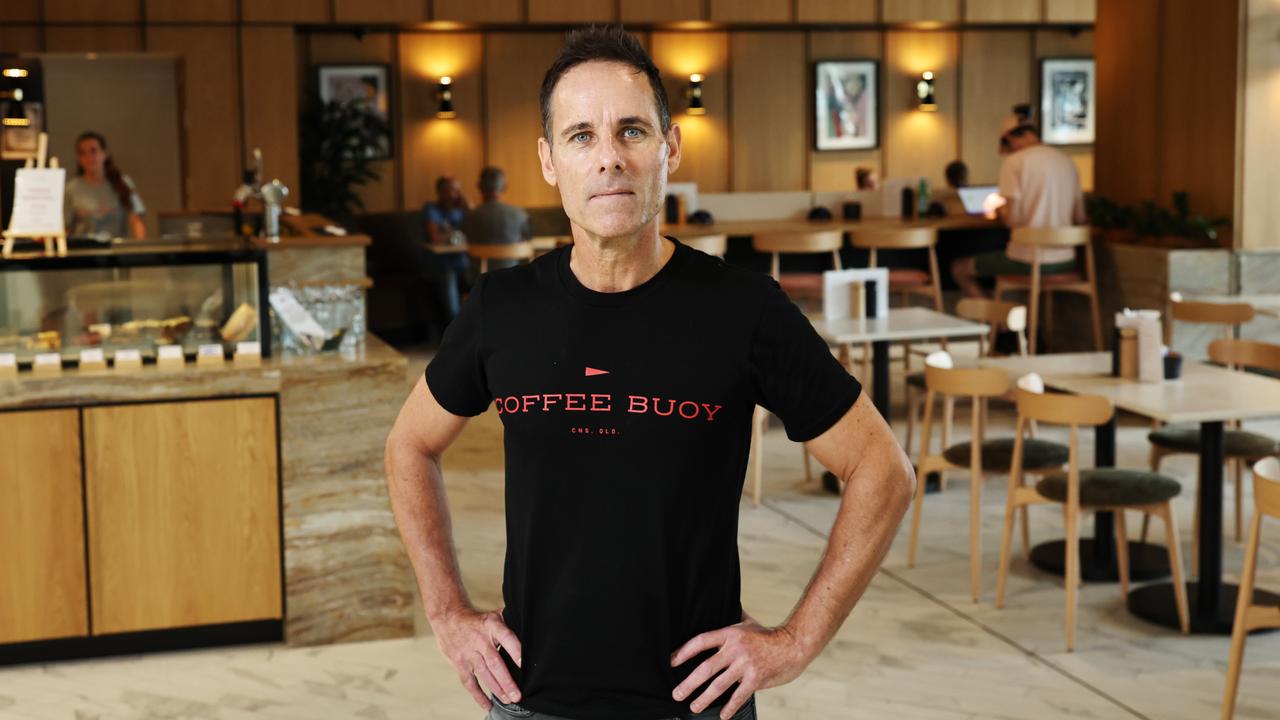How global warming is changing crocodile behaviours in the cape
Queensland crocodiles are spending more time trying to stay cool and less time hunting or mating as their body temperatures increase.
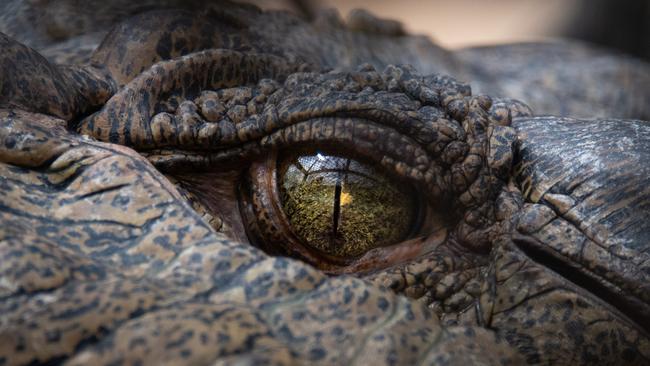
Cairns
Don't miss out on the headlines from Cairns. Followed categories will be added to My News.
Far North Queensland crocodiles are spending more time trying to stay cool and less time hunting or mating as their body temperatures increase.
Researchers from the University of Queensland’s School of the Environment have analysed 15 years of data from sensors and trackers on 203 wild crocodiles in The Cape’s Wenlock and Ducie rivers near Mapoon.
They found crocodiles were spending more time trying to cool off and less time hunting and mating.
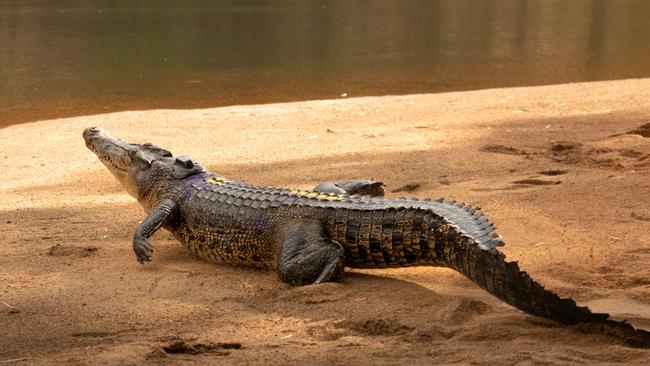
PhD candidate Kaitlin Barham said the data revealed crocodiles were spending more time at or close to their critical thermal limit of 32-33°C, the point where “behavioural performance” decreases.
“As ectotherms crocodiles can’t regulate their own temperature like birds and mammals, so as their environment is becoming warmer the animals in our study are also getting hotter and needing to spend more time on cooling behaviours,” Ms Barham said.
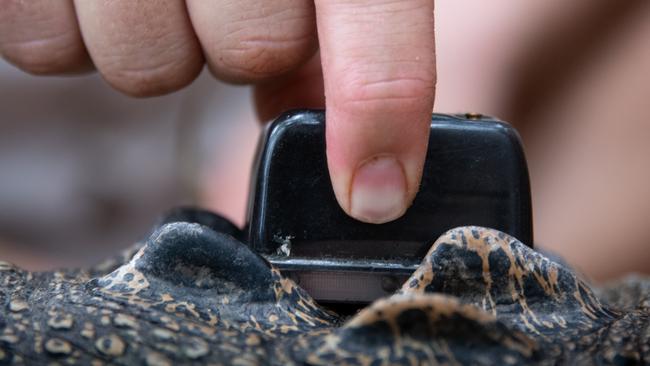
“But if their time and energy is dominated by the need to stay cool, activity necessary for hunting, keeping safe from predators or reproducing is reduced.”
Since 2008 the temperature peaks experienced by the crocodiles in the study have increased by 0.5C and their median body temperature has increased by 0.11C.
Forty-Five of the crocodiles in the study experienced body temperatures above 34C at least once.
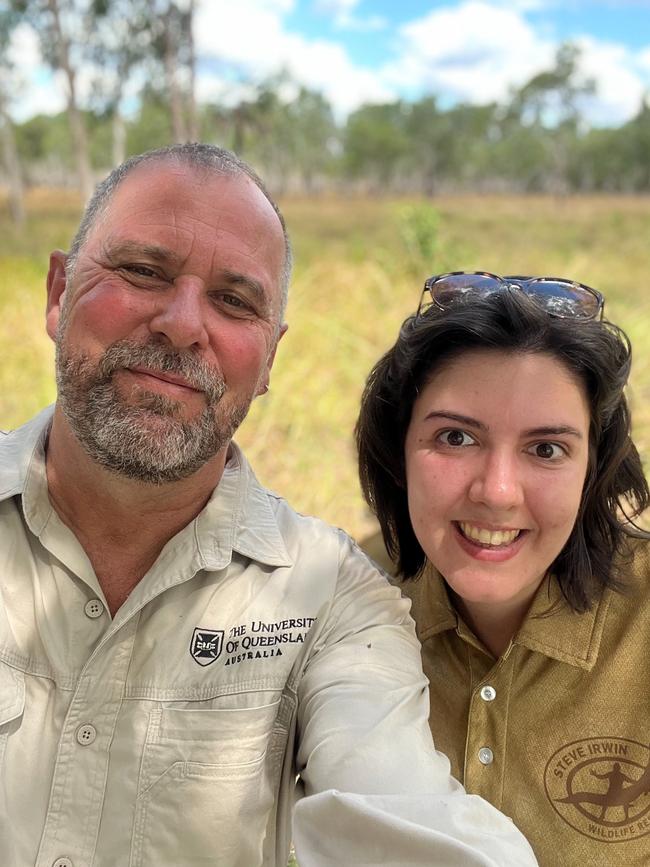
Co-author Professor Craig Franklin said high body temperatures were recorded even while the crocodiles were actively trying to stay cool.
“When they’re above 32-33C, a crocodile’s diving and swimming performance is impacted,” Professor Franklin said.
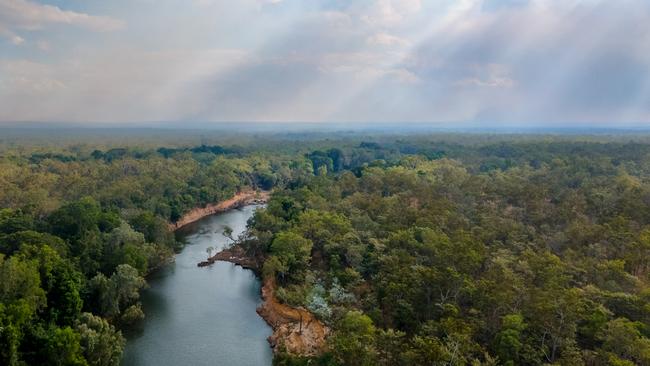
“Hotter crocodiles don’t dive for as long which is concerning because as ambush hunters, they need to wait underwater holding their breath for a wallaby or feral pig to come past.
“The next step in our research will be to look at what impacts behaviour change related to higher body temperatures may be having on the overall health of the crocodile population.”
Nick Bohm runs Daintree Crocodile tours and has been working on the river for well over a decade.
He said that while temperature does affect the behaviour of crocodiles he has not seen a marked change over the years in the Daintree an area much further south than the Cape rivers observed in the study.
“The highest temperature we have seen on the Daintree is around 29 degrees which is probably much cooler so it may be more dramatic an increase up in the Cape,” he said.
“The crocs here always have full bellies so haven’t seen much of a change in terms of the hunting patterns.
“I did move my operations 10km further up the river where the water is cooler and you tend to see more of them up and about.
While not related to behaviour Mr Bohm said that heatwaves and periods of high temperatures can have dire consequences during nesting seasons.
“We had a period where we had 12 days of 39-42C during the nesting season where we saw no hatchlings and we think they all just cooked in their eggs,” he said.
“So that will probably be the biggest worry with higher temperatures.”
The long-term research project has been in collaboration with crocodile experts from Australia Zoo and based from the Steve Irwin Wildlife Reserve.
More Coverage
Originally published as How global warming is changing crocodile behaviours in the cape



